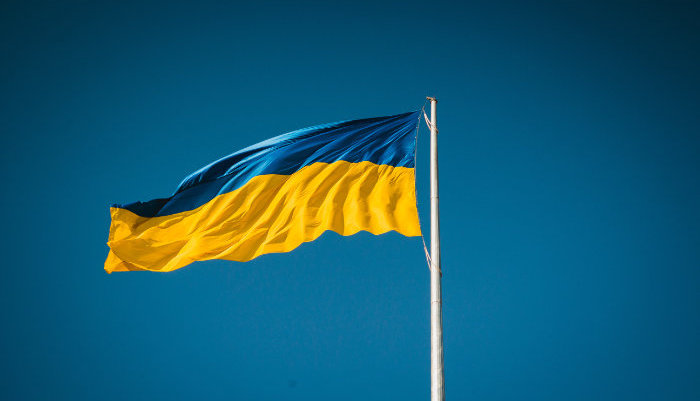Russia invades Ukraine: Here are CNN’s and BBC’s free live feeds to keep up to date with the latest developments.
The attacks started with long-range artillery against Kharkiv and missile attacks near Kiyv. Civilians are hiding underground:
https://twitter.com/thejcoop/status/1496861350567497728
…trying to reach neighboring countries:
At least 10 km long traffic jam at Krakovets border crossing into Poland tonight. All refugees, clamouring to get away from the Russian invasion army. #Ukraine pic.twitter.com/kivGY6yUec
— Øystein Bogen (@oysteinbogen) February 24, 2022
…and taking up arms:
https://twitter.com/PSFAERO/status/1496891293108084742
The Baltic states of Lithuania, Latvia, and Estonia are wondering if they are going to be next.
Russia threatens to target “sensitive” US assets in response to sanctions. Ukrainian banks and government websites have been hit by cyberattacks. Natural gas exports to Europe could be cut off.
Oil is $100 per barrel and European natural gas prices increased by 62%. The US stock markets rebounded after an uncertain week, and cybersecurity stocks are rising. Mortgage rates dropped to 3.89%.
AT&T and 3G: AT&T is the first wireless provider shutting down its 3G network to pave the way for 5G. If you keep an older phone in case of emergencies, you might not be able to dial 911 anymore (you don’t need a cell subscription to dial 911, but you still need a signal). Check with your provider to find out if you just need a software upgrade or a new phone altogether. Other services such as e-book readers, vehicle SOS services, home alarms, and medical alert devices might be impacted.
Why can’t wireless providers keep both 3G and 5G networks? Because there are a limited number of frequencies the FCC sets aside for cellular service, providers have to divide up the spectrum that they’re allocated to run multiple networks. Here’s how 5G technology works.
Supply chain: Logistics giant Expeditors International has suffered a cyberattack that shut down most of its operating systems. It might be tempting to blame this on Russia, but Cybercrime intelligence firm Intel 471 warned in a November report that cybercriminals had been trying to sell network access of multiple transportation, logistics, and shipping companies in order to stage ransomware attacks that could disrupt the global supply chain.
Biden is looking to secure a permanent pipeline of critical materials essential to the tech industry. Global demand for critical minerals is set to skyrocket by up to 600% over the next several decades, with lithium and graphite expected to increase by as much as 4,000%
Climate: Small victories: Although the US is not yet on track to meet the current administrations’ greenhouse reduction targets, the country hit and surpassed Obama-era goals to cut greenhouse emissions at least 17% compared with 2005 by 2020. The EPA’s draft inventory of greenhouse gas emissions shows that emissions were down 21.5% in 2020 compared with 2005 levels.
In more sobering news, wildfire activity is projected to increase by 14% by 2030, and 30% by 2050. On top of that, a new CU Boulder analysis shows that nighttime fires have become more intense, as “hot, dry nights are more commonplace.” This is why it’s ever more important to focus on managing and reducing the risks.
The rest: Trudeau lifts the Emergencies Act. In related news, National Guard troops will be deployed in DC for the truckers convoy.
Chicago unveils the first public utility microgrid cluster in the US. The project will increase resilience in the event of an emergency, such as extreme weather, cyber, or physical attack. The Bronzeville microgrid consists of 750 kW of PV, a 500 kW/2 MWh battery energy storage system, and 5 MW of dispatchable natural gas generation. The solar and storage are expected to keep the microgrid running for 4 hours.
Opinion: The future is underground cities.
Tonga restored internet connection to its main island 5 weeks after the deadly volcanic eruption. 56 miles of undersea cables were repaired, and Starlink is hoped to help reconnect the outer islands.
A Canadian sailor survived 6 days on a raft. He managed to grab his computer, a bag filled with life-saving supplies (including flares and a signal mirror), nachos, crackers, a waterproof backpack with identification, a 20-liter container of water, and his personal locator beacon before his sailboat sank. His advice? “It’s the panic that kills you.”
North Korea has successfully test-fired a new submarine-launched ballistic missile.

You are reporting the comment """ by on